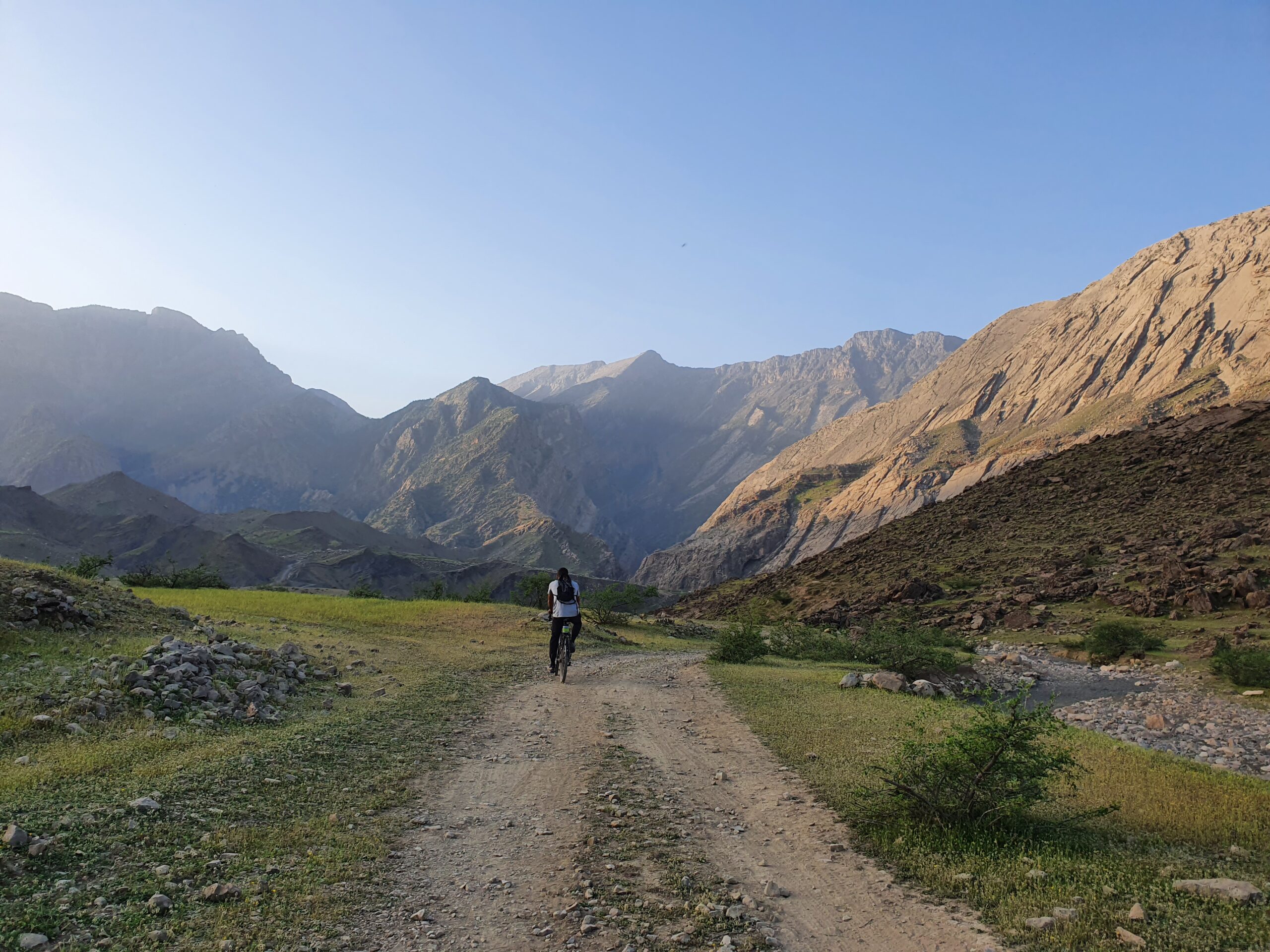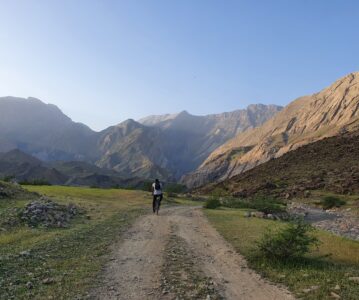After a quiet second night in the lagoon we say goodbye to this magical place. Meanwhile, the weather is so hot that we try to get up early and leave early. Already at 10 o’clock the temperature reaches around 30 degrees, but thanks to the driving wind the heat can be endured surprisingly well.
Soon the road coincides again with an impressive river course: Today we drive along the Darreh Khazineh Canyon. Canyons are often well hidden, however, as their fascinating feature is to dig deep into the landscape. So we turn off the road onto a seemingly flat plain and actually make it to the edge of the impressive canyon. Over time, the course of the river has eaten tight bends and curves into the ground, and the walls drop almost vertically about 200 meters into the depths. We nibble emergency cookies, marvel at this freak of nature and soon meet Mohamad, who is herding his flock of sheep a few hundred meters away. He asks us for water, we of course fill up his empty water bottle and already he emphatically invites us to lunch with his family. “And the sheep?” we ask. By the time he has finally persuaded us, the flock has already set off on its own for lunch. Mohamad`s family has actually pitched their temporary tents right nearby and we are allowed to join the round without any complications. Today is the first day of the fasting month Ramadan. As it seems, this is not an issue here. Rice, bread, yogurt and herbs are served and meanwhile about eight people are sitting in the simple accommodation.
We dine, drink tea and climb behind the tents towards the bubbling water. Also on the steep flanks on the opposite side, herds of sheep and goats can be seen, which are killing the little greenery. Before we leave, Mohamad fills our water bottles. On a rack in front of the tents, he knocks back a damp cloth to reveal four bulging animal skins. Quickly one leg is unknotted and wonderfully cool drinking water gurgles out of the “hose” into our bottles. Fascinating! Apparently these are wild boar skins, which serve here in headless and hollowed out form as drinking water containers.
The water has a somewhat peculiar taste and every now and then a bristly hair adds to the experience, but still quite ingenious what tricks people used in the past!
Two hot driving days later we arrive in Andimersk and we have two plans ready for the onward journey: Either we take the train from here through the mountains to Dorud, or we continue in the sweltering heat towards the southeast and then try to overcome the mighty mountain range that now separates us from Isfahan by car stop. Whether we will actually be able to load the bikes onto the train, we don’t know. Such things you just have to try and not be too disappointed if it doesn’t work out.
We eat something What and spontaneously cycle to the train station to try our luck with the afternoon train.
The train driver shakes his head, a station man yaps at him, and the young men standing in the open train door look on with interest. “No problem, it is ok”, we say and start loading our bags back onto the bikes. Suddenly there is movement in the car; men are moving luggage, changing places and numerous hands are helping to move our bags and bikes into the car. We have no idea how this came about, but a short time later we are sitting on the train heading for Dorud in the worst possible condition. Soon the track leads away from the roads and villages and steers straight into the range of hills that separates us from Dorud, over 200 km away. The landscape folds and the train rattles through countless tunnels, crossing ever deeper river valleys and what we glimpse through the windows seems ever more remote and wild. We plan to leave the train today at a small station somewhere in the middle of nowhere, spend the night there, take a hike, and then complete the trip to Dorud only the next afternoon. We have only a few rials left in our wallet – there was no time to change money, we also didn’t buy anything – in our pockets there are some dried fruits, some nuts, some lentils and an onion and also the gasoline level in our stove is rather low. Well. Somehow it will work out, we hope. Surely we can find a handful of rice or pasta somewhere.
The train leaves another long tunnel, rattles over adventurous bridges above the bubbling river and comes to a stop at the small intermediate station Tale Zang. Quickly our mountain of luggage is carried back to the platform and we look around in disbelief: Breathtakingly high and smooth rock walls frame the small village. It is hot, as we are only at a few hundred meters of altitude, despite the alpine surroundings. Some men are standing around, the buildings around the train station seem abandoned and somewhat dilapidated. There is no village to be seen. Finally a young policeman helps us. He knows a place where we can pitch our tent and leads us over another long drawbridge to the other side of the river to a small plain. Two families seem to live here with their goats. Mohamed shows understanding for our predicament and we are allowed to have dinner with the family after a long exploratory walk.
Before sunrise the next morning we set out to hike an eleven kilometer waterfall. Thanks to the bikes we can shorten the long distance a bit, but the hike remains far and in the increasing heat also quite tiring. The area is spectacular and can’t be compared to anything we have seen so far on this earth in terms of landscape: Huge, scaly rock faces rise into the sky like sharp teeth. Gray rock alternates with red, bluish and black rock types. Gravelly slopes with conglomerate and sloping rock. Rivers flow from everywhere to the big main river and also the flora seems little known to us. We walk across meadows, sandy passages, through reeds, exotic oak groves and even spot some date palms. The last hundred and fifty meters of altitude we cope with an impressive scramble over a steep rock, which requires in places some freedom from vertigo. After almost three hours we finally reach the mysterious waterfall: hundreds of small watercourses rush over a lushly overgrown rock face, collecting in a turquoise blue water basin. Small birds flutter by, salamanders hold meetings underwater, and small fish dart between the rocks. It is paradisiacal and the trash lying around makes us all the sadder. Apparently people take an eleven kilometer walk to get to this special place and then find nothing wrong with just leaving their empty cans, pet bottles, plastic bags and packaging behind… We have completely fallen in love with the Iranian people. But this heedlessness is a big stain in our eyes. The problem is not reserved for Iran. At least since we left the EU, we see daily that people bury themselves in garbage the longer the more. Plastic bags adorn bushes and trees and cover whole swaths of land. Cans, bottles, diapers, batteries, disposable tableware and whatever else civilization produces that cannot rot. There is no solution to this problem in sight and the thrust is clear. Dutifully, we always throw our own waste into garbage cans and trash cans, but we are aware that our waste will also end up in an open landfill, blown by the wind and contributing to the pollution of the planet.
Translated with www.DeepL.com/Translator (free version)


